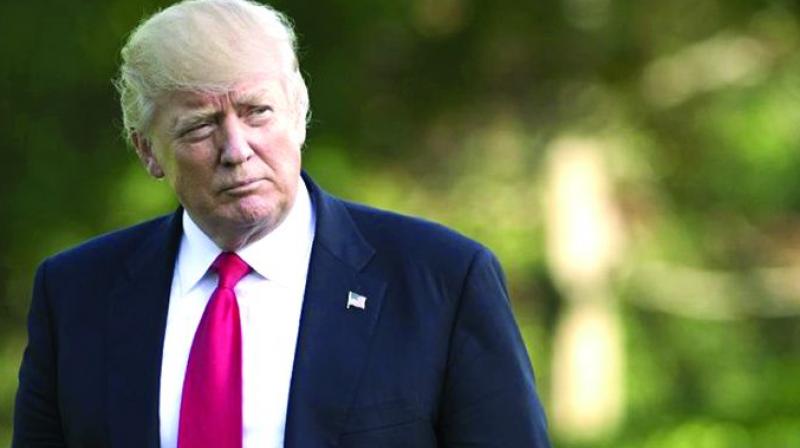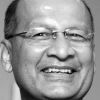Trump ushers in new diplomacy paradigm
Trump has managed to introduce a “new normal†in international and domestic intercourse.

I disapprove of what you say, but I will defend to the death your right to say it” — wrote biographer Evelyn Beatrice Hall about Voltaire’s beliefs. That was 1903. Just a century later, a growing number of powerful personalities are determined to smother or discredit, not only contrarian opinion but also inconvenient facts. The trailblazer is none other than the colourful, mercurial and truth-be-damned “leader of the free world”, US President Donald Trump. In his scheme of things, even the facts are not sacrosanct. Welcome to the world of “alternative” facts!
According to the Washington Post: “As of June 7, his 869th day in office, the President has made 10,796 false or misleading claims” — an impressive record indeed, that is highly unlikely to be disturbed in a hurry. Of course, the likes of venerable CNN, Washington Post and New York Times are dismissed as “fake news” by the White House occupant who is in “love” with his “friend” Kim Jong-un, the ruthless dictator of North Korea.
The latest “alternative fact” was delivered on July 22 when he threw a curve ball at the visiting Pakistani Prime Minister Imran Khan (as also 1.3 billion Indians some 13,600 km away) by saying: “I was with Prime Minister Modi two weeks ago… He actually said, ‘Would you like to be a mediator or arbitrator?’ I said, ‘Where?’ He said, ‘Kashmir’. Because this has been going on for many, many years. I was surprised at how long it’s been going on… I’d love to be a mediator.” New Delhi’s response was swift. “No such request has been made by the Prime Minister to the US President”, the official spokesman clarified the very same day.
The next day, external affairs minister S. Jaishankar told Parliament: “I would like to categorically assure the House that no such request has been made by the Prime Minister to the US President.” It is anyone’s guess why Mr Trump engaged in such shenanigans? Clearly, someone planted the idea and he grabbed it, perhaps even without consulting the state department. Was India shocked? No! Surprised? Yes, and no! Have bilateral relations been damaged? No! What is India’s takeaway? Expect the unexpected, remain vigilant and stay engaged.
Mr Trump has managed to introduce a “new normal” in international and domestic intercourse. He has inured his interlocutors to bombshells. And nothing seems to disturb his own composure, though he craves respect and is susceptible to flattery. When world leaders laughed at him at the UN General Assembly session last year for stating — “In less than two years, my administration has accomplished more than almost any administration in the history of our country” — he remained unfazed. “It’s gotten very good reviews, certainly, and I think it (address) went very well” — was his response. Speak of Teflon coating!
He is even-handed though, having picked up fights with or embarrassed his neighbours (Canada and Mexico), his Nato allies (including Britain, France and Germany) and Asian partners (China, India, South Korea and Australia). He has pulled out of the Paris climate accord (turn on the air-conditioner if it is warm — that’s his recipe to combat climate change), the Trans-Pacific Partnership and the JCPOA with Iran, to cite just a few examples. Early into his presidency he held, patted and jerked around Shinzo Abe’s hand for a full 19 seconds, who barely hid his grimace. They have since become good friends and golf-buddies. Mr Trump also admires President Vladimir Putin, Saudi Crown Prince Mohammed bin Salman and Chairman Kim Jong-un.
Geostrategic imperatives are passé, transactionalism is in. Predictability is passé, transient considerations are in. International relations are henceforth to be weighed in dollars and cents. The astute Saudis made the right call by signing a $110 billion arms deal, when Mr Trump paid his maiden overseas visit to Riyadh in 2017. Nothing mattered thereafter. Not domestic human rights violations, nor the thousands of civilian casualties consequent to the Saudi air campaign in Yemen, or the murder of Saudi journalist Jamal Khashoggi at the Saudi consulate in Istanbul.
In late June 2019 in Osaka, on the margins of the G-20 summit, Mr Trump said: “It’s an honour to be with the Crown Prince of Saudi Arabia, a friend of mine… As you know, Saudi Arabia is a purchaser… especially of American military equipment… at least a million jobs are created (as a result).”
President Trump is close to pulling out of Afghanistan, leaving that hapless nation to the mercy and sufferance of Pakistan and the Taliban; is baiting Iran into a conflict that can plunge the entire region into bloodshed and is determined to unleash a trade war on friends and foes alike. Nepal is “Nipple” and Bhutan is “Button”, but trade is something he believes he understands, in order to make “America great again”. More than half of his country’s electorate and most of the world may look at him askance, but his constituents adore him.
Can the world consider Mr Trump as a one-time phenomenon? It is hard to say. President Putin is notorious for being unfashionably late for meetings with his counterparts. Filipino President Rodrigo Roa Duterte, who uses expletives while referring to fellow world leaders, has repeatedly made disparaging statements about women and allowed his law enforcement agencies to carry out extrajudicial execution of thousands of alleged drug dealers and users. On the other hand, feminist Justin Trudeau of Canada, finds “mankind” as sexist and wants it replaced by “womankind” or “personkind”.
These personalities could be a source of comic relief, but for the tremendous destabilising power they wield. The world has already witnessed the aftermath of the horrendous 9/11 attack, that has consumed hundreds of thousands of lives, in retaliatory action ordered by President George W. Bush and in civil strife. The Persian Gulf, the South China Sea and the Korean Peninsula remain active flashpoints. The US and China are engaged not just in a trade war but also jostling for global politico-economic and infotech dominance. The established international order is under stress and the normative rules of engagement are being shunned. It’s to be hoped that the “deal-maker” in President Trump prevails over his other impulses.

